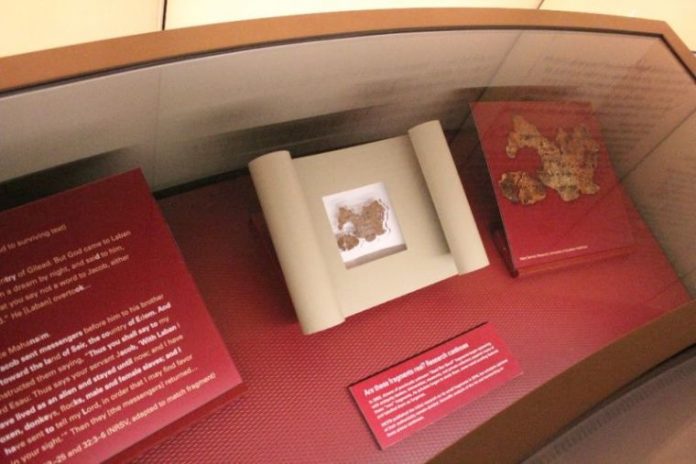The 16 Dead Sea Scroll fragments housed at the Museum of the Bible in Washington, D.C., considered its most prized possessions, are modern forgeries, independent researchers have found.
“The Museum of the Bible is trying to be as transparent as possible,” the museum’s CEO Harry Hargrave said, according to National Geographic. “We’re victims —we’re victims of misrepresentation, we’re victims of fraud.”
The Advisory Team of Art Fraud Insights, whose services were hired by the museum for a thorough physical and chemical investigation of all 16 pieces, unanimously concluded that none of the textual fragments housed in the museum are authentic. All the fragments show “characteristics that suggest they are deliberate forgeries created in the twentieth century with the intent to mimic authentic Dead Sea Scroll fragments.”
“The new findings don’t cast doubt on the 100,000 real Dead Sea Scroll fragments, most of which lie in the Shrine of the Book, part of the Israel Museum, Jerusalem,” National Geographic clarifies. “However, the report’s findings raise grave questions about the ‘post-2002’ Dead Sea Scroll fragments, a group of some 70 snippets of biblical text that entered the antiquities market in the 2000s. Even before the new report, some scholars believed that most to all of the post-2002 fragments were modern fakes.”
The substrate of the Museum’s scroll fragments — except one — appears to be “leather rather than the surface tanned and untanned parchment that is characteristic of the authentic Dead Sea Scrolls,” the report said. “The degraded condition of the fragments reinforces our theory that modern writing was applied to small scraps taken from archeological deposits of leather. Through elemental and molecular analysis, we further found that the raw skins of the leather substrates for the MOTB fragments appear to have been lime-depilated, a technology that postdates the original Dead Sea Scrolls.”
SOURCE: Christian Post, Anugrah Kumar
All Content & Images are provided by the acknowledged source



